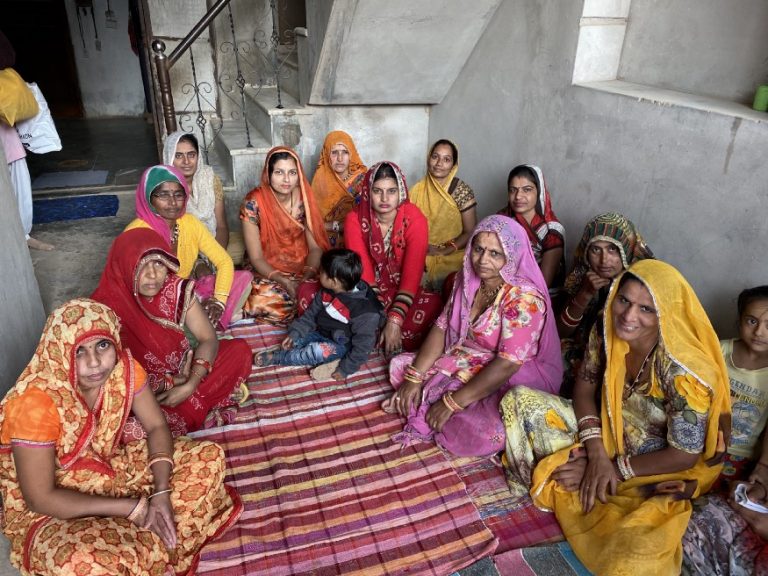
The Pakistani Hindu migrants who fled to India have often been jailed or deported because of petty visa offences.
Sahana Singh
I also visited the carpenter community of artisan migrants who have been organized into groups and are producing a variety of products. Ishwar Sewa Foundation will soon be working with them to popularize their products and sell them to a large clientele in America. The head of the artisans presented me with a beautiful tray that took my breath away.
Perhaps the most memorable part of my trip to Jodhpur was its sheer timeliness. On my last day there, when voting was going on in Rajya Sabha for the Citizenship Amendment Bill (after it had already been passed by the Lok Sabha) I stopped everything and went to Shri Sodha’s house and watched the proceedings live on TV! From the past two days, journalists had besieged Shri Sodha to get quotes on everything related to the bill — the history of the Hindu migration from Pakistan, the legal quagmire of citizenship and the tortured path of advocacy. The phones rang non-stop. I felt anxious. What if the opposition parties united together in Parliament that day and decided to block the bill? What if the hopes of the Hindu migrants were crushed?
“The voting can go either way,” said my ever-realist husband.
I steeled myself.
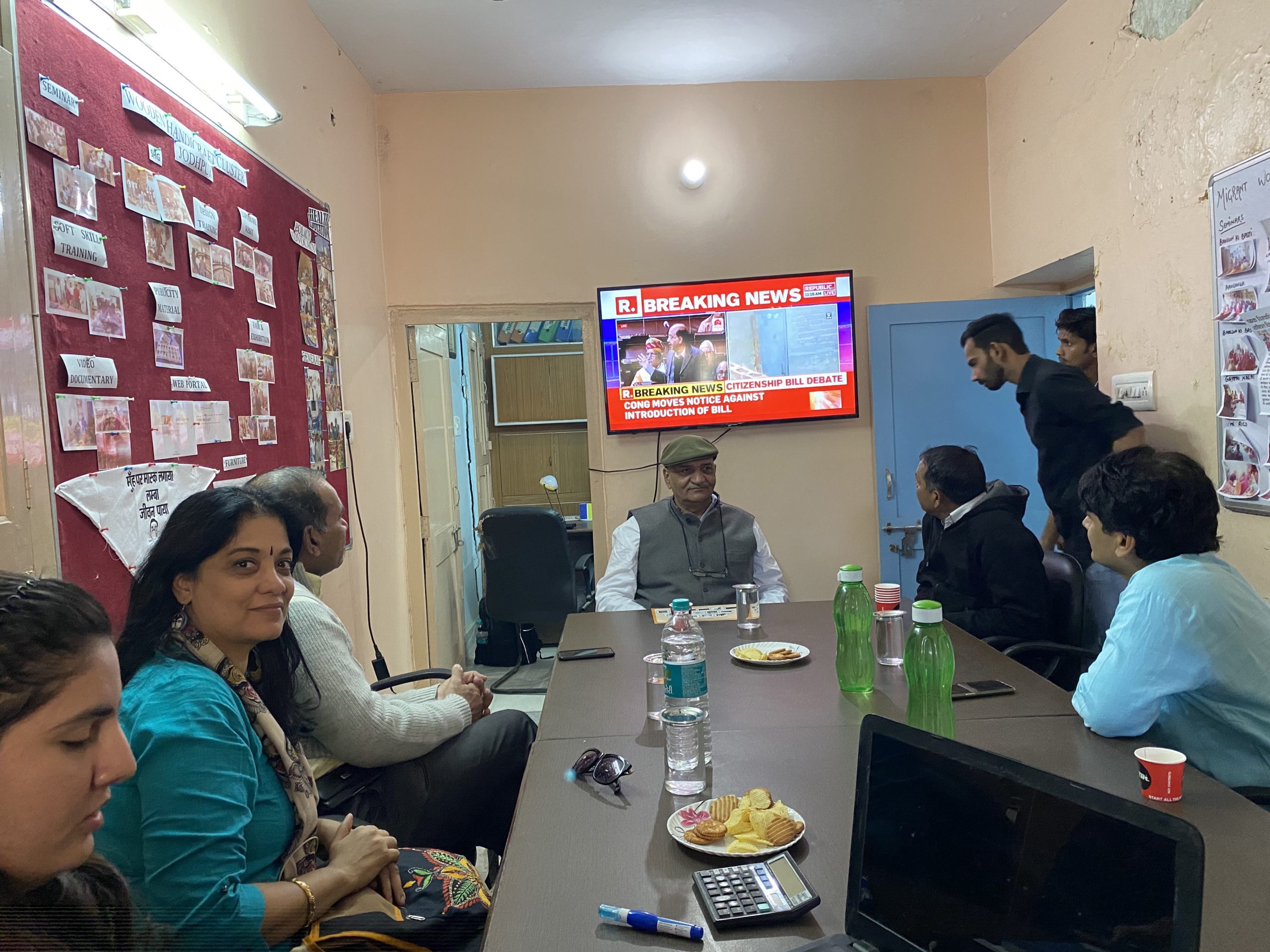 Then came the moment when the parliamentarians voted on the bill or #CAB as it was being tagged in social media. 125 votes were in favor of the bill and 105 were against it — the bill was all set to become an Act! I looked at Shri Sodha’s face to see how he was reacting. How does a man who has been toiling for a lifetime react when a major objective of his labor is met?
Then came the moment when the parliamentarians voted on the bill or #CAB as it was being tagged in social media. 125 votes were in favor of the bill and 105 were against it — the bill was all set to become an Act! I looked at Shri Sodha’s face to see how he was reacting. How does a man who has been toiling for a lifetime react when a major objective of his labor is met?
There was silence.
For a second, I fell into confusion. Did the bill just get passed or was it just a dream? Why was Hindu ji so silent?
“Where are the sweets?” I almost shouted. “We must celebrate! Where are the sweets?”
“Yes, yes we must celebrate!” said Shri Sodha, coming out of his disbelief. The sweets arrived and we all rushed to do the traditional “moonh meetha karna”. How could such a sweet moment not be celebrated with sweets in proper Indian tradition!
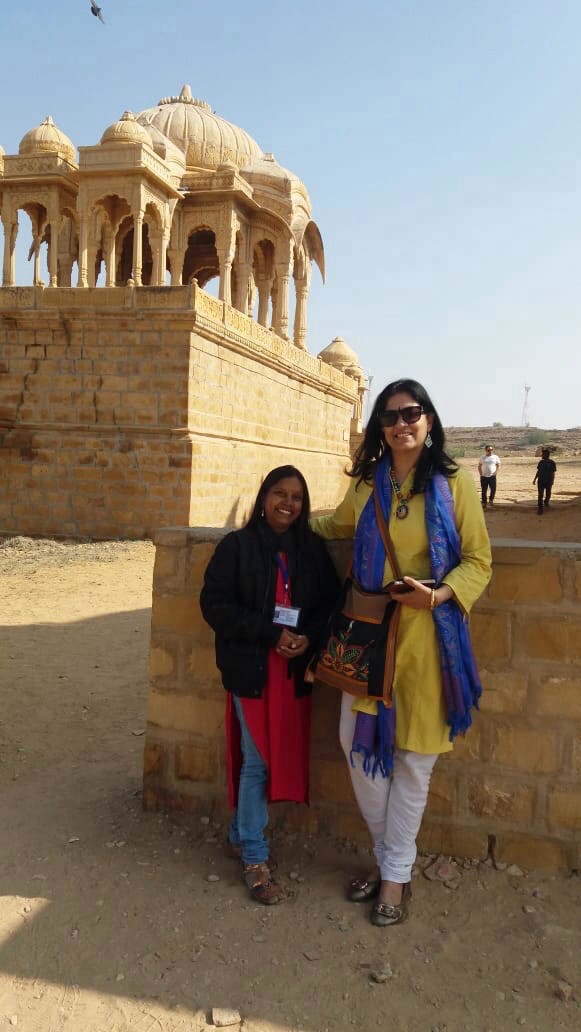 On the next day, a large number of Hindu migrants from the Anganwad basti including the women came to thank Shri Hindu Singh Sodha. The media persons from various papers and TV channels were there too. When I arrived from my hotel, the women were already garlanding their hero. Sweets were being distributed. Some of Hindu ji’s fame rubbed off on me and journalists began to interview me. I wanted to be a bystander but the journalists were curious to know what I was doing there. At one point, I found myself being garlanded too! We all stood there congratulating each other; it was like being victorious in a battle.
On the next day, a large number of Hindu migrants from the Anganwad basti including the women came to thank Shri Hindu Singh Sodha. The media persons from various papers and TV channels were there too. When I arrived from my hotel, the women were already garlanding their hero. Sweets were being distributed. Some of Hindu ji’s fame rubbed off on me and journalists began to interview me. I wanted to be a bystander but the journalists were curious to know what I was doing there. At one point, I found myself being garlanded too! We all stood there congratulating each other; it was like being victorious in a battle.
I watched and recorded as an India Today journalist interviewed Shri Sodha on his reactions to the historic Act. It felt as if I had inadvertently become a part of history.
All of us knew that an important milestone had been reached but the challenge of resettling the refugees and giving them a meaningful life of dignity still remains.
My trip has shown the potential for Ishwar Sewa Foundation to make a huge impact on the Hindu migrants settled in Rajasthan by working with a professionally-run grassroots-level organization.
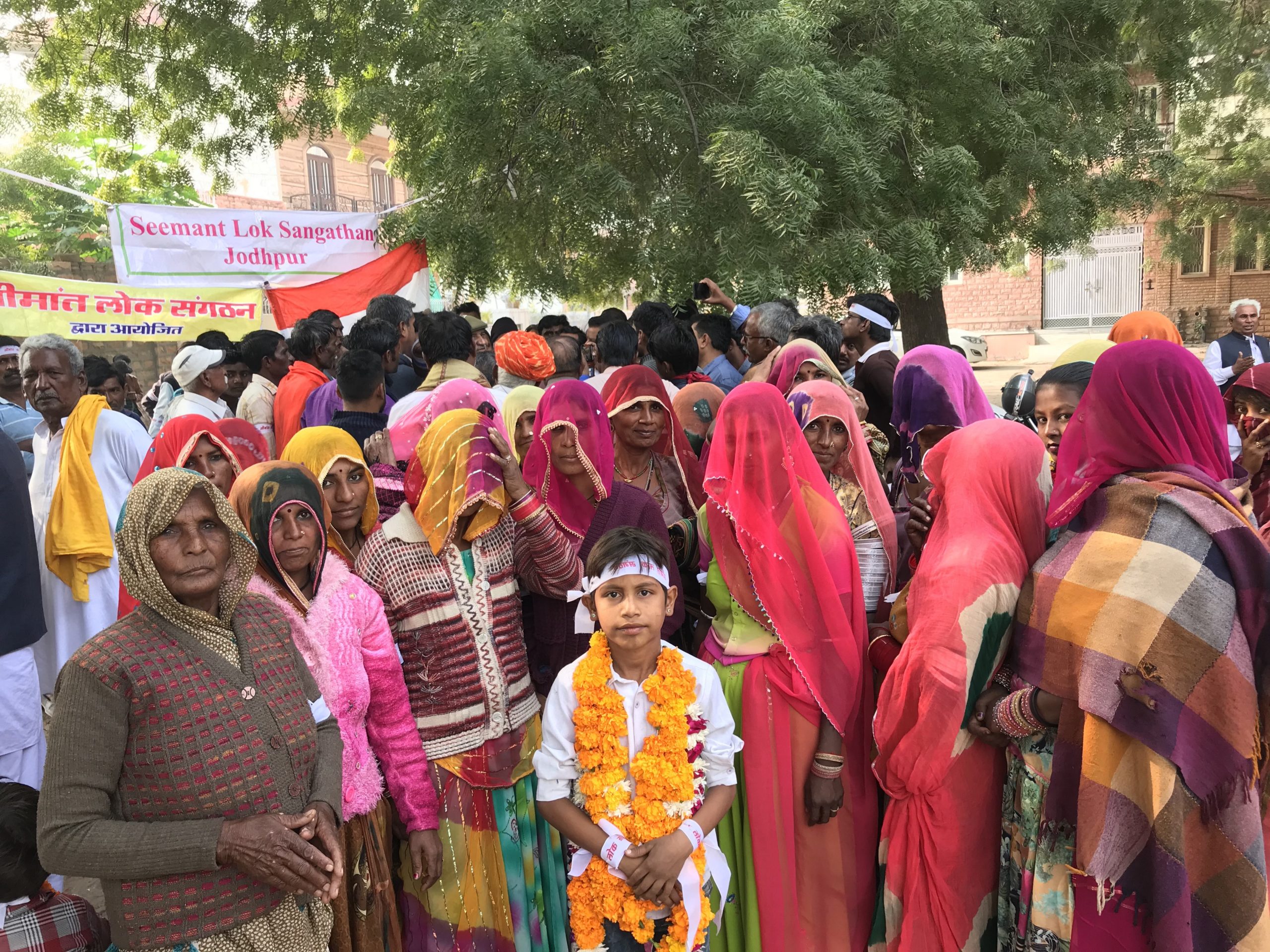 After an eventful sojourn at Jodhpur in which I found myself witnessing history, it was time to journey 280 kilometers to Jaisalmer in the northwestern part of Rajasthan. Even though it was my third visit to Jaisalmer, my heart began to beat madly from the moment I found the urban landscape being replaced by vast desert terrain. For me, it was the land of romance, bards, camels, jingling jewelry, rainwater harvesting and so much more that had captured my imagination over the years.
After an eventful sojourn at Jodhpur in which I found myself witnessing history, it was time to journey 280 kilometers to Jaisalmer in the northwestern part of Rajasthan. Even though it was my third visit to Jaisalmer, my heart began to beat madly from the moment I found the urban landscape being replaced by vast desert terrain. For me, it was the land of romance, bards, camels, jingling jewelry, rainwater harvesting and so much more that had captured my imagination over the years.
This time, however, I did not plan to linger in the touristy places that I had seen in my previous visits. This time the focus would be on Pakistani Hindus living in Jaisalmer, which shares a boundary with Pakistan. For decades, the Hindus had been escaping from religious persecution by fleeing to Rajasthan, but the Indian government had not been addressing their woes, as described in the previous part of this article series.
I wished to see what livelihood projects could be initiated for the refugees with the help of the Indian diaspora under the auspices of Ishwar Sewa Foundation. Also, I had told my hosts at UJAS to help me meet some experts in history, culture and water management.
We stopped a number of times during the drive; once for tea, once for lunch and once near a toll plaza where I went crazy at the sight of a mirage-like water body in the distance and felt like running towards it. The others in the car were kind enough to indulge me and waited patiently while I went towards the water and photographed it.
Lunch was at an interesting restaurant on the highway called Shiv Shakti restaurant which offered 13 dishes for just INR 100! There were other options like 33 dishes for INR 150 and 43 dishes for INR 250! I opted for the cheapest one simply because the thought of eating so much oily food made me feel nauseous. I would really like to meet the person who has the appetite to consume 43 dishes dripping with oil! My companions pointed out to me the Dhaati dishes in the buffet. Check my previous article which gives an introduction to the Dhaati culture that is common to the desert regions of India and Pakistan.
At Jaisalmer, we were received by Dileep Singh Sodha, another Pakistani Hindu migrant who had devoted his energies to rehabilitating his people. At first, I thought he was of Afghan-origin; his stoic, weather-beaten face reminded me of the Afghanis I had seen in “The Kite Runner”. But of course, I reminded myself that the people of Afghanistan and Pakistan are of the same stock and share the same genes as the people in India; political borders have never been able to segregate genes.
After a night of rest, we made our way to Laudrawa. Next to a beautiful Jain temple some Pakistani Hindu migrants who were living nearby came to interact with me. While I was waiting for them, I made a quick visit to the temple.
Soon, the migrants came to sit on the benches close to the temple and the exchanges began. They talked about their lives; the problems with water and electricity among other things. I asked if all the jaatis lived together peacefully and if there were any conflicts over sharing of water from wells with other jaatis. All of them told me emphatically that there could be personal rivalries and hostilities but certainly not any quarrels related to caste or religion.
Touring along with me within Jaisalmer was social activist Sarita Maurya who helped me in interacting with people; she spoke Rajasthani fluently despite being from Lucknow. She had earlier worked with UJAS in the area of prevention of child marriages in the migrant communities. We exchanged many notes. I hope UJAS and Ishwar Sewa Foundation will be able to utilize her experience in upcoming projects.
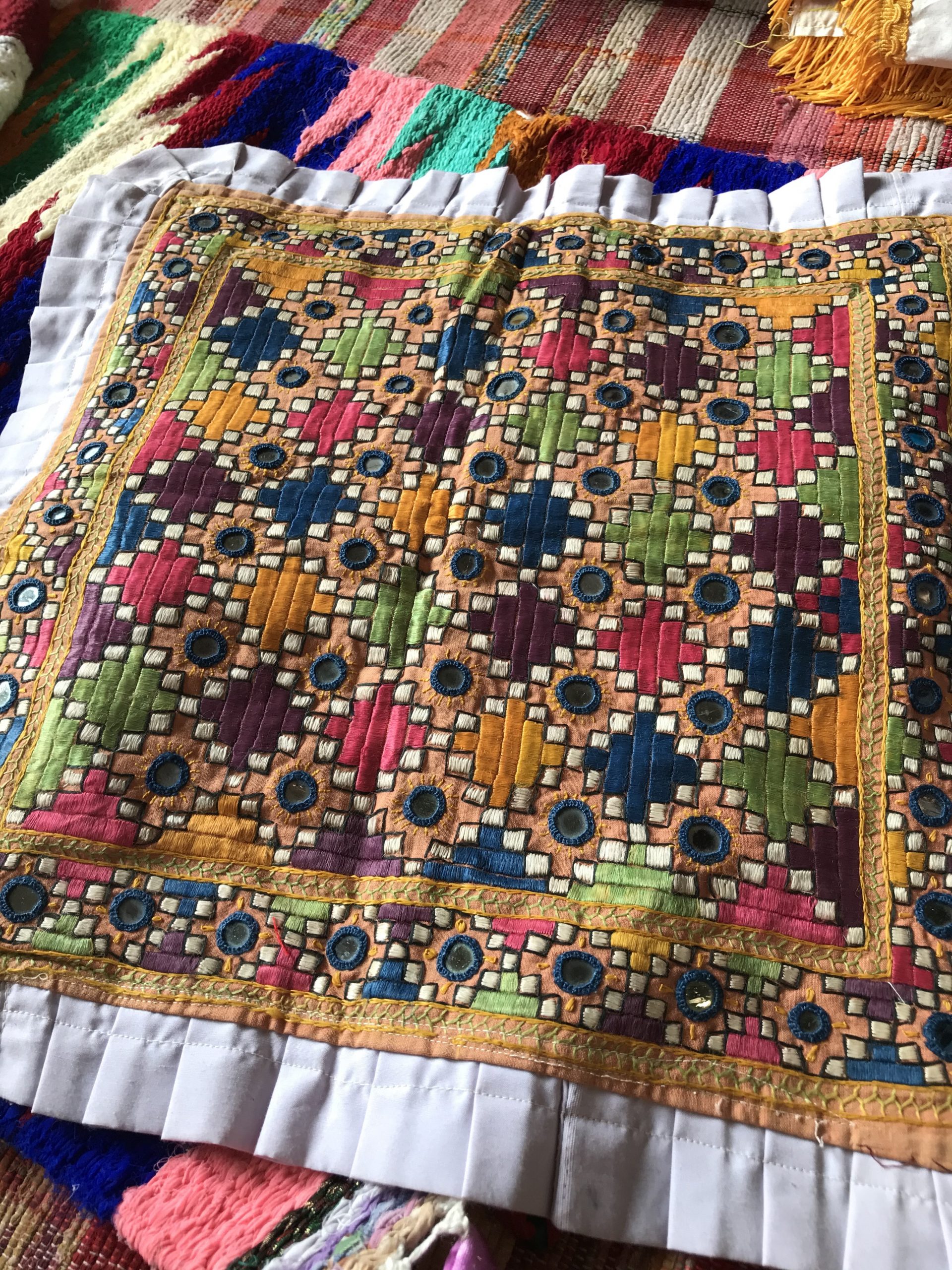
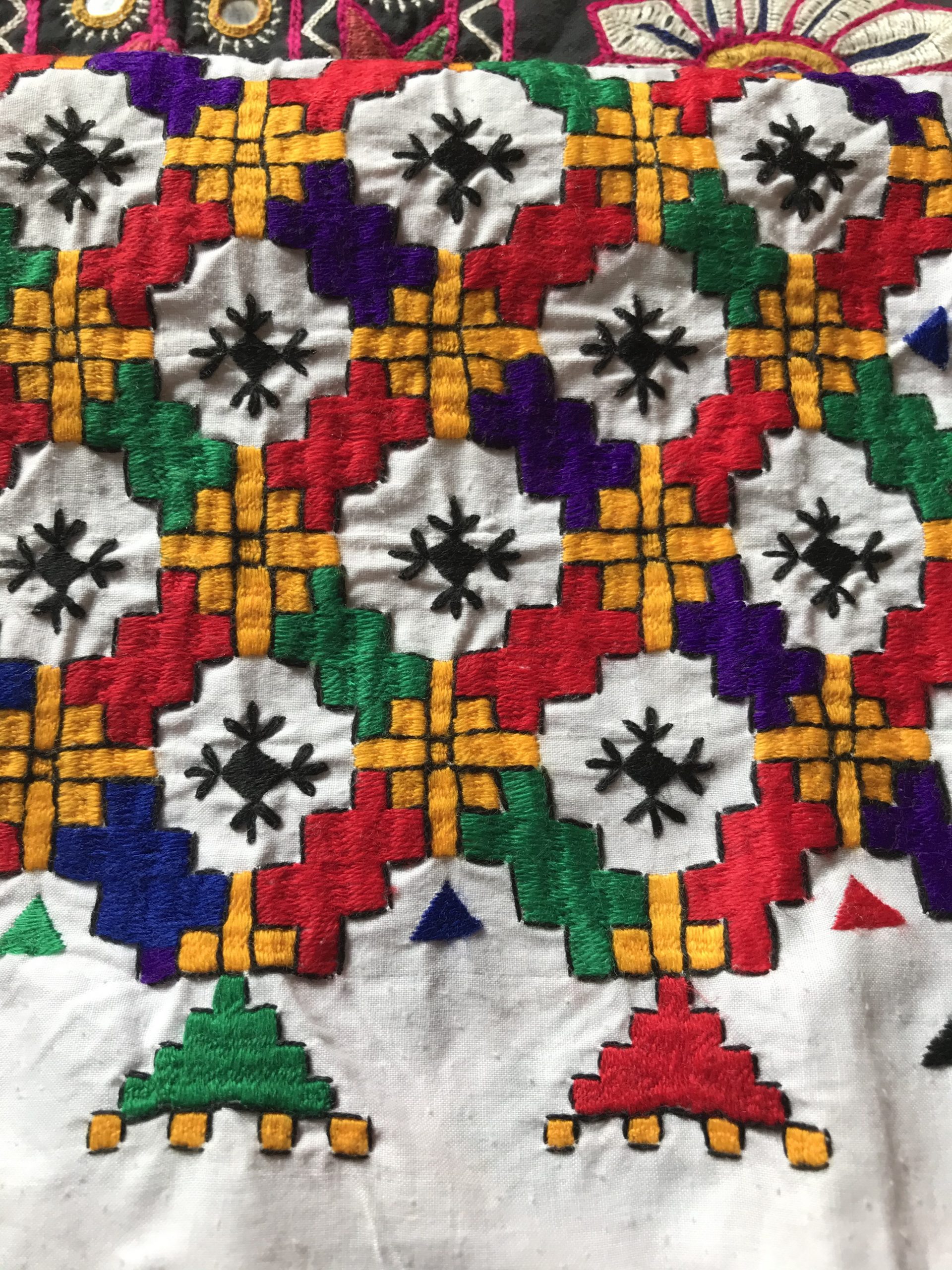 My next interaction was at Bhil Basti at Jaisalmer which has some 1,000 Pakistani Hindu families living in the most pitiful conditions. As a 2016 article reports, the absence of proper water supply and toilets has resulted in a very unhygienic state of affairs for the Bhil community members. It was hard for me to believe that a massive slum existed not far from a major international tourist destination like the Golden Fort of Jaisalmer and that the people were all Pakistani Hindus!
My next interaction was at Bhil Basti at Jaisalmer which has some 1,000 Pakistani Hindu families living in the most pitiful conditions. As a 2016 article reports, the absence of proper water supply and toilets has resulted in a very unhygienic state of affairs for the Bhil community members. It was hard for me to believe that a massive slum existed not far from a major international tourist destination like the Golden Fort of Jaisalmer and that the people were all Pakistani Hindus!
In the 2016 article, a refugee is quoted as saying “In the manifesto of the BJP before the elections, rehabilitation of Pakistani refugees was a major point but nothing has happened so far. Every month around 10 families are coming here from Pakistan and most of them have to live under the open sky.” Today, of course, the policy landscape has changed vastly. The BJP government has enacted the Citizenship Amendment Act recently, which will fast-track the citizenship of eligible Pakistani Hindus, enabling them to apply for subsidies and benefits that poorer Indians are provided with.
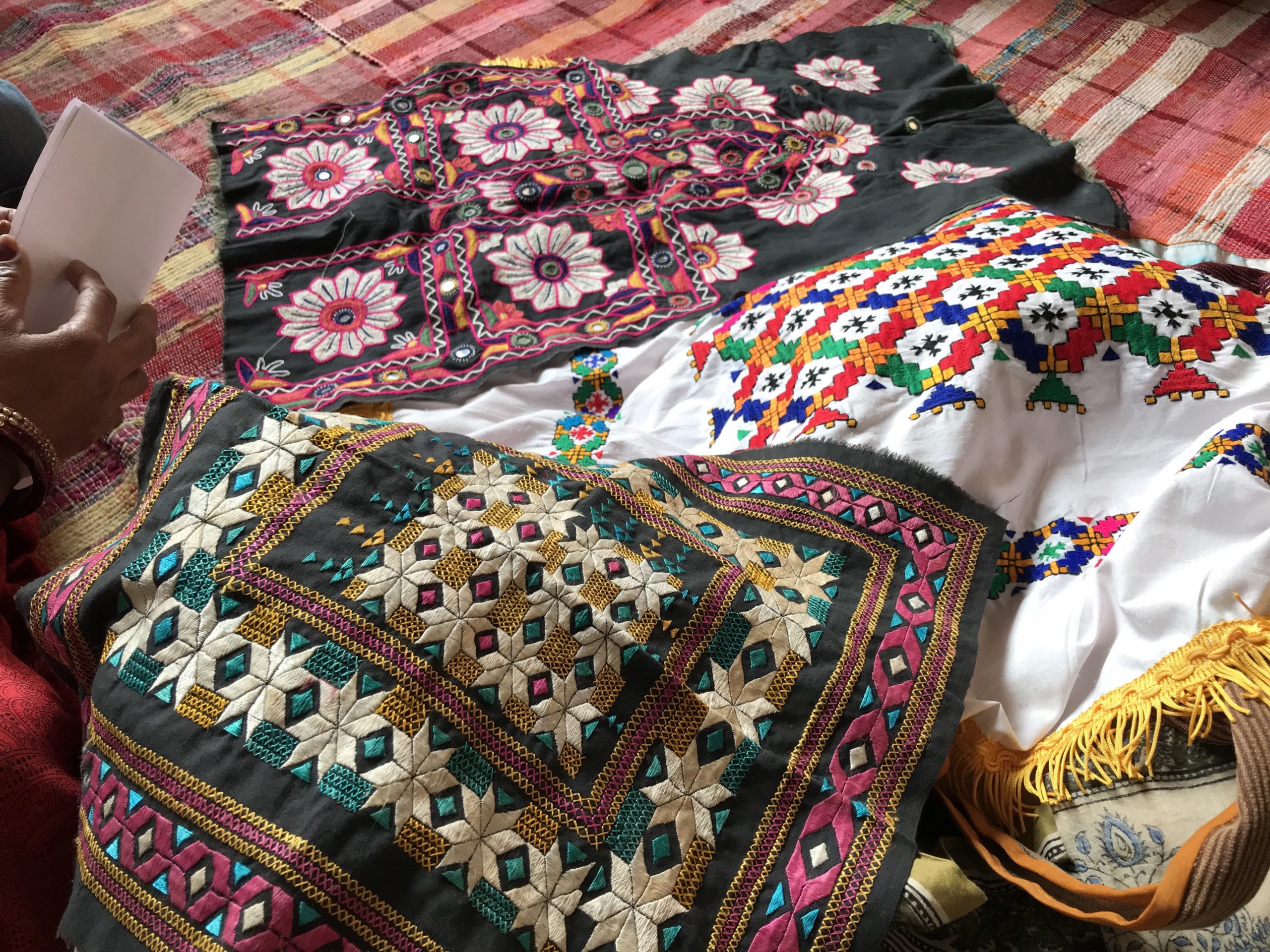
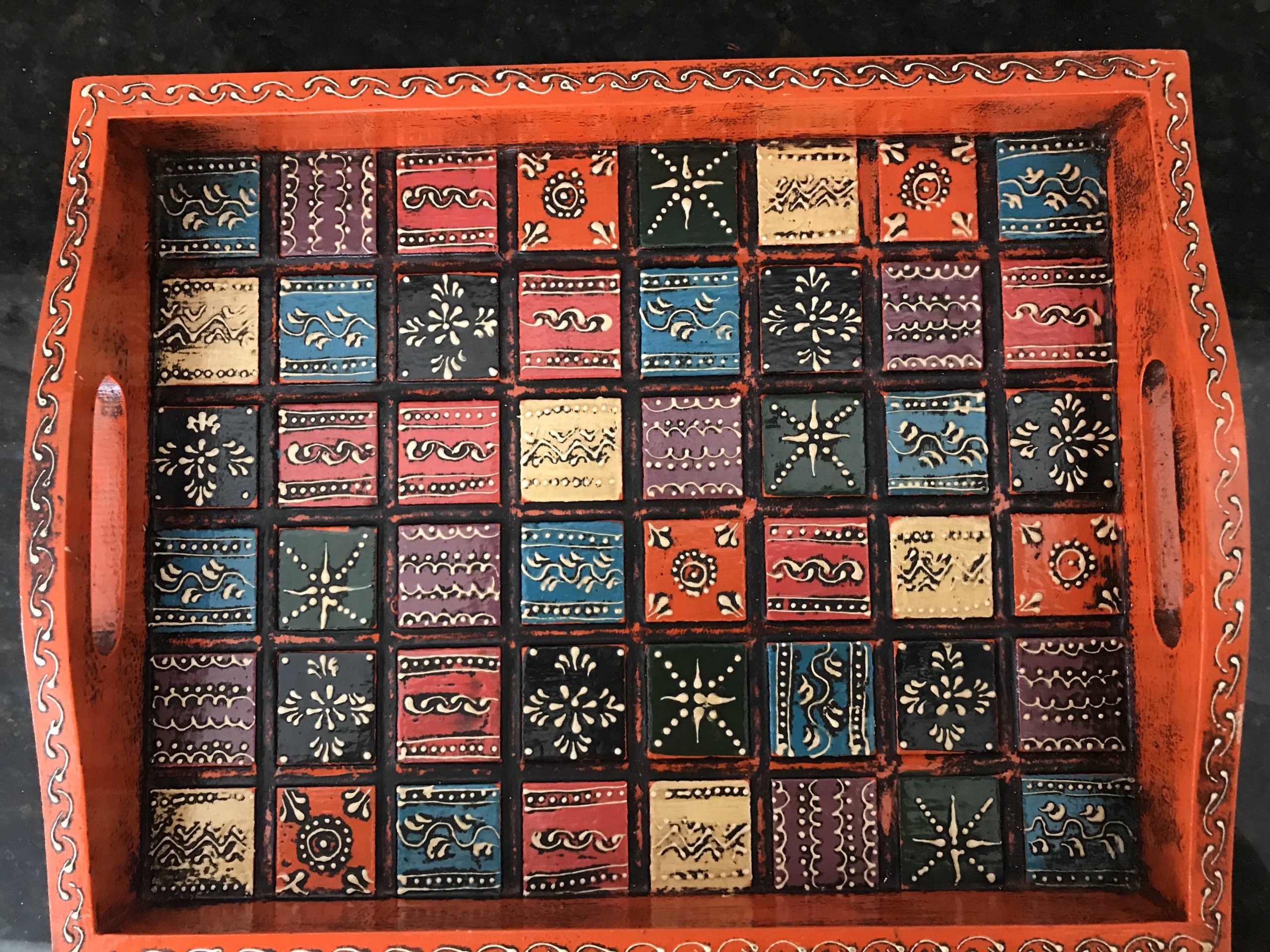 It broke me to learn that most of the men in the Bhil Basti earned their living by breaking rocks manually. Pathhar todna (Breaking rocks) is an expression we casually use in Hindi as in sentences like “Itna bhi kya kaam hain, koi pathhar to nahin todna hain na? (Why are you complaining about work; you are not having to break rocks, are you?) The utter despair written on the faces of the men I met seemed so justified when seen in the context of sitting in the sun all day long breaking rocks till their arms hurt.
It broke me to learn that most of the men in the Bhil Basti earned their living by breaking rocks manually. Pathhar todna (Breaking rocks) is an expression we casually use in Hindi as in sentences like “Itna bhi kya kaam hain, koi pathhar to nahin todna hain na? (Why are you complaining about work; you are not having to break rocks, are you?) The utter despair written on the faces of the men I met seemed so justified when seen in the context of sitting in the sun all day long breaking rocks till their arms hurt.
In the other camps housing Pakistani Hindus that I visited in Delhi and Jodhpur, mostly there were people on visas waiting for the day when they could become citizens of India. But here in Jaisalmer, I saw the other side — refugees who had become citizens in 2005 or later but still had not received any benefits in terms of water, electricity, education or employment. Their huts look so vulnerable and unprotected from the elements.
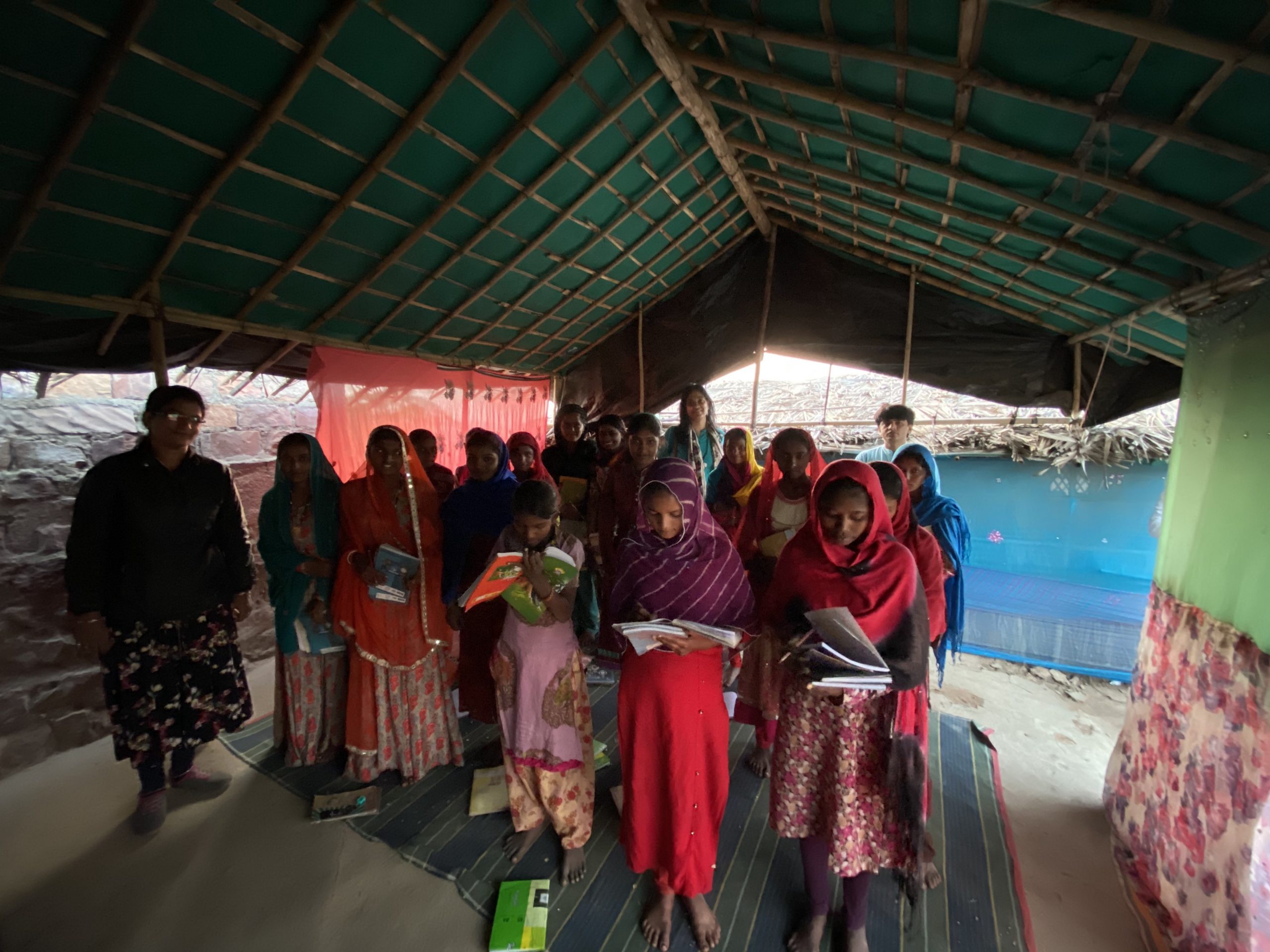
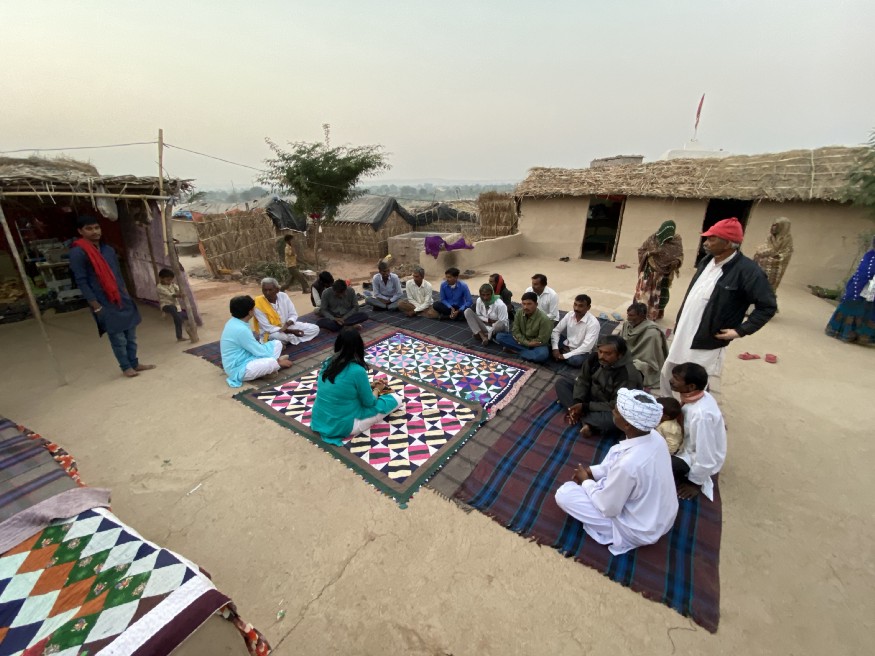 Even though rural Rajasthan has achieved open-defecation free (ODF) status in 2018, and cities such as Jaipur, Jodhpur and Bikaner have become ODF, it is clear that there is a great deal of unfinished business in Jaisalmer.
Even though rural Rajasthan has achieved open-defecation free (ODF) status in 2018, and cities such as Jaipur, Jodhpur and Bikaner have become ODF, it is clear that there is a great deal of unfinished business in Jaisalmer.
“So the benefits of Swachh Bharat Abhiyan” have not reached you?” I asked the people at Bhil Basti.
“No! Most of us have to resort to open defecation!”
How I wished I could call Prime Minister Narendra Modi right away…
“Please help us,” said an old woman. “We are being asked to leave this place but we have been living here from the 80s. My sons, daughters-in-law, grandchildren are here. We do not have any place to call our own, no paper that allots this land to us.”
“We will not leave,” said her son. “We lived here when there was nothing nearby; nobody wanted to come to this deserted, smelly place; and now suddenly they start developing this place with roads and ask us to get out.”
The women came forward to show me their works of embroidery, crochet and other needlework. The colors were a little garish just as I had found in the works at other refugee camps. The combination of colors that they tend to use might not be appreciated by urban Indians but it was evident that with some guidance, these women could cater to the tastes of a diverse clientele. I could see that they had even made upcycled products like baskets using aluminum foil packaging.
The need of the hour is a well-designed capacity building program, enabling women and men to make products of commercial value in a time-bound manner. There is so much talent waiting to be unleashed!
I urge the Governments of India and Rajasthan to not neglect these wonderful people from Pakistan any more —let them get the benefits of infrastructure, toilets, housing and education. These are the brave minorities who did not convert to Islam; they did not give in to brutalities but retained their Gods; their traditional dresses, languages and songs. They are keeping our civilization alive.
Only the government can invest in large infrastructure projects but as members of a small non-profit organization, we have resolved to do everything we can to help people whom history placed in a country that gives no respect to minorities.
Ishwar Sewa Foundation has now entered into a partnership with UJAS (Universal Just Action Society) and has announced the launch of a skill development project for Hindu migrants from Pakistan in Jaisalmer. The ISF-UJAS skill development initiative will help these migrants to become productive members of society and enable them to compete in a skill-intensive industry or give them an opportunity to start their own small business. Within a year, we hope to train at least 100 migrants in embroidery and other skills. (Concludes)
_______________
Courtesy: Medium